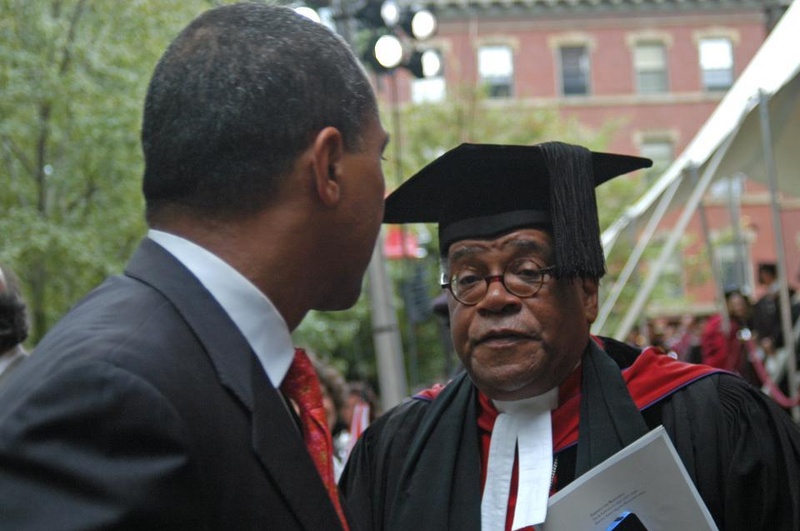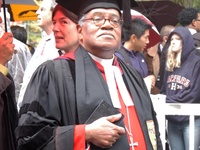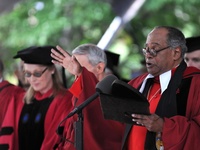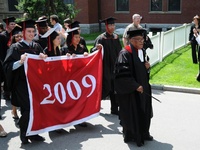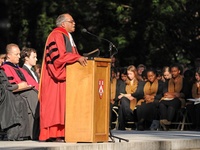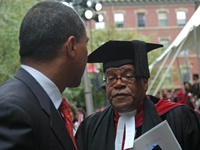With the death of Reverend Peter J. Gomes on Monday, Harvard has lost one of its most celebrated figures—a man loved for his oratory, his staunch advocacy for equality, and his three and a half decade-long ministry of Memorial Church.
Gomes died Monday evening after a brain aneurysm and heart attack. He was 68.
For many in the Harvard community, Gomes—who was the Plummer Professor of Christian Morals at the Harvard Divinity School—was at the center of the University. As a minister, an adviser, and a friend to those who knocked on his door, he leaves a deep mark on Harvard’s history.
“No one epitomizes all that is good about Harvard more than Peter J. Gomes,” said professor Henry Louis “Skip” Gates Jr. in a statement.
Gomes was a long-time advocate of political equality and emerged as a leading figure of the gay rights movement on campus. Gomes’ coming out as gay was hailed as a turning point at Harvard, and Gomes gained national recognition as a prominent Christian figure who was also a gay activist.
In recent years, Gomes became one of the most beloved figures at the University where he presided over countless Commencement and Convocation ceremonies. He was one of few individuals on campus who it was impossible to miss—whether preaching in his characteristically booming voice or welcoming freshmen to campus in an avuncular, friendly tone. And dressed in elegant tweed, tortoiseshell glasses, and a dark wood cane, he could do nothing but stand out to the students who saw him wander through the Yard.
“Peter Gomes was an original,” Harvard President Drew G. Faust said in a statement. “Through his wisdom and appreciation of the richness of the human spirit Reverend Gomes has left an indelible mark on the institution he served with unmatched devotion and creativity.”
SPEAKING UP
“I am a Christian who happens as well to be gay”—with those words, spoken before a crowd of protesters gathered in front of Widener Library, Gomes came out to the Harvard community. The year was 1991 and the crowd, gathered to rally against homophobic remarks published in a magazine, erupted in applause.
The announcement was a seminal moment for the gay rights movement at Harvard and quickly made Gomes one of its leaders.
“He was a scholar, a preacher, a teacher, and a public intellectual who brought religion into politics in ways that illumined our thought. At important moments, he stood up for things that mattered—for freedom, for liberty, and for equality,” said Memorial Church Associate Minister and longtime friend Dorothy A. Austin.
“As he stood there and watched various people come out in front of the crowd, I remember him saying, ‘This is the time to speak up,’” Austin said. “That led the way very powerfully in the movement.”
After the announcement, Gomes remained a powerful voice on issues of gay rights.
“The way to the future is always paved by extending, not restricting, liberties,” he wrote in the Boston Globe in 2004. “To extend the civil right of marriage to homosexuals will ... permit a whole class of persons both to benefit from a valuable yet vulnerable institution.”
Austin recalled Gomes arriving at the Massachusetts State House in 2004 wearing his characteristically ornate garb. He delivered an impassioned speech to gay marriage advocates.
Read more in News
Number of Seniors In Gen Ed Doubles








